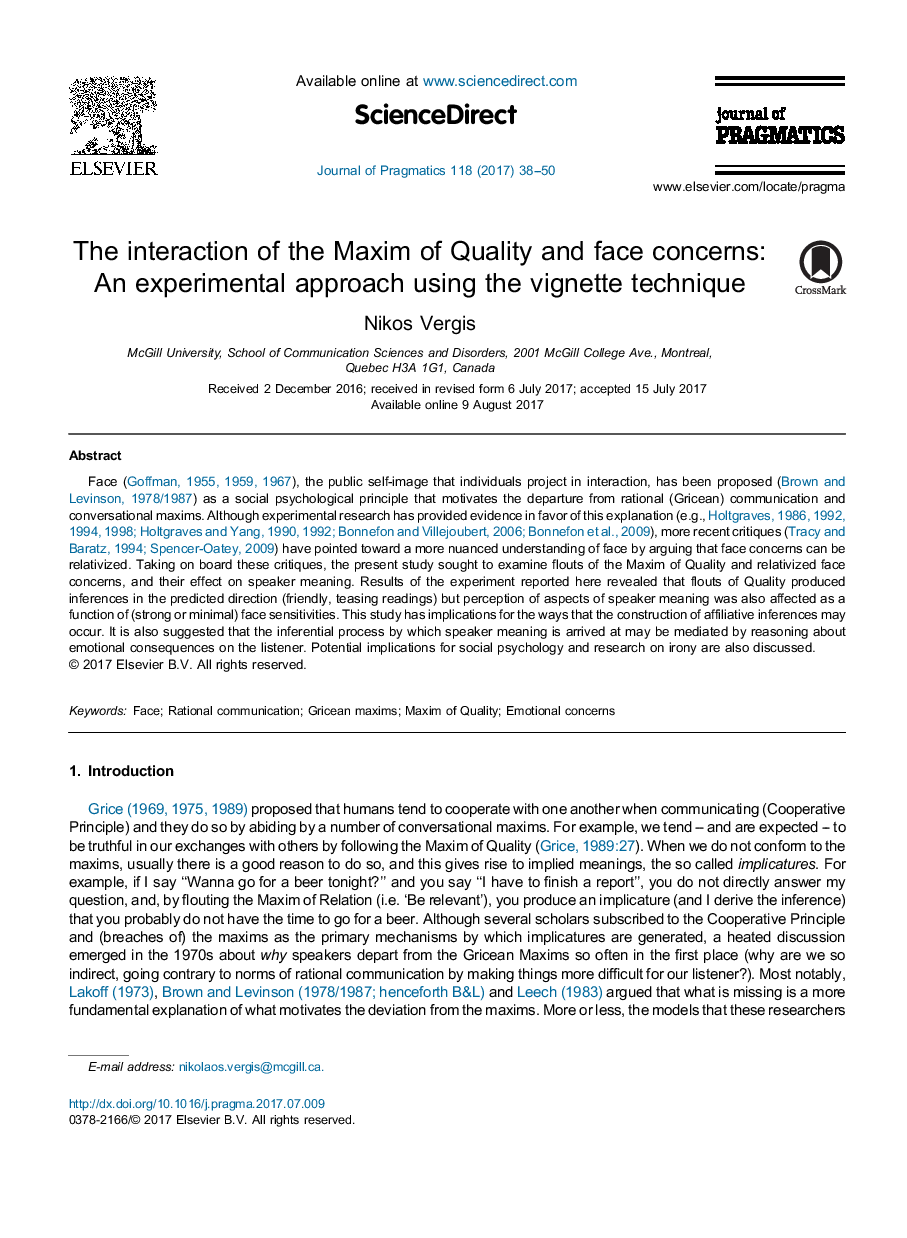| Article ID | Journal | Published Year | Pages | File Type |
|---|---|---|---|---|
| 5042636 | Journal of Pragmatics | 2017 | 13 Pages |
â¢Flouting the Maxim of Quality affected all aspects of speaker meaning.â¢The effect of the relativity of face sensitivities was less strong.â¢There was a significant correlation between insincerity and affiliation.
Face (Goffman, 1955, 1959, 1967), the public self-image that individuals project in interaction, has been proposed (Brown and Levinson, 1978/1987) as a social psychological principle that motivates the departure from rational (Gricean) communication and conversational maxims. Although experimental research has provided evidence in favor of this explanation (e.g., Holtgraves, 1986, 1992, 1994, 1998; Holtgraves and Yang, 1990, 1992; Bonnefon and Villejoubert, 2006; Bonnefon et al., 2009), more recent critiques (Tracy and Baratz, 1994; Spencer-Oatey, 2009) have pointed toward a more nuanced understanding of face by arguing that face concerns can be relativized. Taking on board these critiques, the present study sought to examine flouts of the Maxim of Quality and relativized face concerns, and their effect on speaker meaning. Results of the experiment reported here revealed that flouts of Quality produced inferences in the predicted direction (friendly, teasing readings) but perception of aspects of speaker meaning was also affected as a function of (strong or minimal) face sensitivities. This study has implications for the ways that the construction of affiliative inferences may occur. It is also suggested that the inferential process by which speaker meaning is arrived at may be mediated by reasoning about emotional consequences on the listener. Potential implications for social psychology and research on irony are also discussed.
